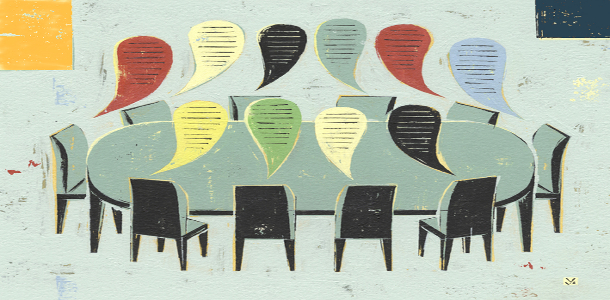Posted by laurajane on Mar 5, 2014 in Uncategorized | Comments Off on 39 more ways to close your emails





39 ways to close your emails
Tired of closing your emails with “Thanks” or “Sincerely”? Want to keep your email sign-offs informal, yet polite? Or maybe you want to inject a little personality into your emails. I once received an email from an outside contractor that ended with, “I stand ever ready to assist you.” Nice sentiment, but odd given our working relationship. The email sign-off—more formally called a valediction—can be tricky. It should be consistent the overall tone of your email and reflect your relationship with the recipient. Choose your closing words carefully. Here are...

Posted by laurajane on Feb 19, 2014 in Uncategorized | Comments Off on What would Jane Austen do? A guide to social media etiquette
What would Jane Austen do? A guide to so...
Jane Austen novels are full of characters who make astounding social errors. From Mr. Collins over-ingratiating himself with Lady Catherine de Bourgh in “Pride and Prejudice,” to Emma’s very cruel and very public snubbing of Ms. Bates in “Emma,” Austen’s novels illustrate perfectly how not to behave. And though they were written 200 years ago, the social lessons translate to 2014. Take social media. Much has been written about bad manners and blunders on social media, but here are a few I’ve experienced recently, discussed in the context of Austen’s most...

16 Shakespearean insults
When it comes to clever comebacks, insults, and affronts, few can match the wit and genius of William Shakespeare. Though his plays are filled with stabbings, poisonings, and sword fights, some of the most wounding moments include the verbal attacks of Shakespeare’s characters. Though it is unlikely that any of us could work these into our writing for PR purposes, reading them is certainly a diversion, and perhaps they could inspire a clever, non-vicious turn of phrase in a blog post or a press release. I’ve been daydreaming about using these on certain co-workers....

Keeping your readers focused
“Try reading a book while doing a crossword puzzle. That’s the intellectual environment of the Internet.” In his book, “The Shallows: What The Internet Is Doing to Our Brains,” Nicholas Carr describes what we have long suspected — that our use of the Internet is creating neurological changes in the brain, affecting our ability to remember facts, or pay attention long enough to fully understand what we read. Now, what was that again? Though many disagree with Carr, the research he cites in his book has important implications for content creation. Among the...

Posted by laurajane on Jan 30, 2014 in Uncategorized | Comments Off on Treading on thin ice, schools chief delivers an ideal apology
Treading on thin ice, schools chief deli...
During a recent spell of bad weather, I was home watching a communication crisis unfurl, a crisis that hit close to home. An ice storm had moved into the Austin area in the early morning hours of Jan. 28. Like many parents in the area, I woke up expecting an announcement that school would have a delayed opening or be closed completely. By 6:30 a.m., there was no announcement, so we proceeded with our morning routine. I dropped my kids off at school and then started the long commute to the office. Fifteen minutes later, just as I was hitting traffic, I received a text...

Posted by laurajane on Jan 28, 2014 in Uncategorized | Comments Off on Alternatives to dehumanizing business jargon
Alternatives to dehumanizing business ja...
It’s January, and for many of us it’s time to complete our annual self-assessments and undergo another round of performance reviews. No matter how good a writer you are or how adept you are at crafting messages, it’s never easy to complete a self-assessment. Choose the wrong words, and you might not get a raise. If only executives thought so carefully about words—particularly the words they use to describe the people who work for them. We’ve all been on the receiving end of a message that made us feel less like a human being and more like a replaceable part in...

Posted by laurajane on Jan 22, 2014 in Uncategorized | Comments Off on And the award for best word goes to . . .












